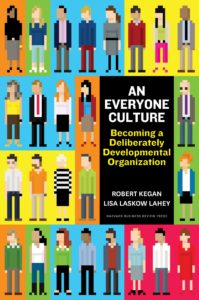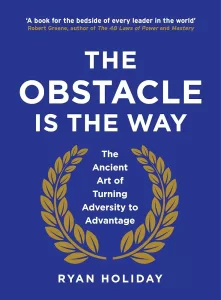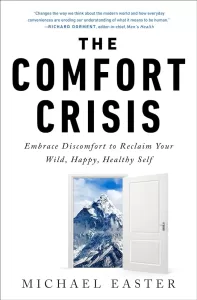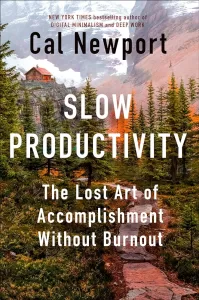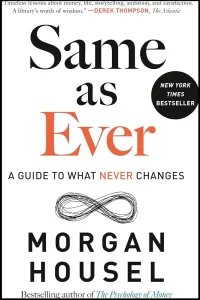Book Review: “An Everyone Culture”
Book: An Everyone Culture by Robert Kegan & Lisa Laskow Lahey
Reviewer: Bobby Powers
My Thoughts: 7 of 10
In this book, Kegan and Lahey investigate the work environments of three "deliberately developmental organizations" (DDOs): Bridgewater and Associates, The Decurion Corporation, and Next Jump. In these organizations, employee development is a core business strategy—one that can generate outsized profits. Kegan and Lahey bring the reader into the culture of a DDO, where you are left to decide for yourself whether you'd like to create a similar environment in your workplace.
Takeaways from the Book
Background
- "Research shows that the single biggest cause of work burnout is not work overload, but working too long without experiencing your own personal development."
- “In an ordinary organization, most people are doing a second job no one is paying them for...Most people are spending time and energy covering up their weaknesses, managing other people’s impressions of them, showing themselves to their best advantage, playing politics, hiding their inadequacies, hiding their uncertainties, hiding their limitations.”
What Is a DDO?
- “Imagine so valuing the importance of developing people’s capabilities that you design a culture that itself immersively sweeps every member of the organization into an ongoing developmental journey in the course of working every day. Imagine making the organization itself—and not separate, extra benefits—the incubator of capability...Imagine finding yourself in a trustworthy environment, one that tolerates—even prefers—making your weaknesses public so that your colleagues can support you in the process of overcoming them...You’re imagining an organization that, through its culture, is an incubator or accelerator of people’s growth. In short, you’re imagining a deliberately developmental organization.”
- “When we talk about a DDO, we use the term development very differently. We mean, not the development of a career, but the development of the person having the career. We aren’t first talking about the business becoming bigger, but becoming a better version of itself. Businesses expand and careers flourish within a DDO, but these changes are consequences of the kind of development we’re talking about; they are not the development itself.”
- “In essence, a DDO is working on ways to provide people the maximum exposure to those experiences likely to help them continue—when they are ready—the ongoing journey of adult development.”
- “DDOs continuously stir things up, troubling the waters; ordinary organizations continuously try to calm things down, instituting repeatable routines...An ordinary organization may not even know it is doing it, but, at bottom, it is trying to minimize a certain kind of disturbance...A DDO, in contrast, strange though it may sound, values disturbances and is designed to preserve them at an optimal level—not overwhelmingly high, but never down to zero.”
Life in a DDO
- “Like the two other DDOs, Next Jump challenges employees by moving them into roles for which they’re not yet prepared to succeed and then provides them with steady streams of feedback to help them grow into those roles. In all three companies, if you’re completely able to perform your role, it’s no longer the right role for you; it has no ‘stretch’ left.”
- “It is one thing to be relentless about continuously improving the processes by which work gets done; it is quite another to be relentless about continuously improving the people who do the work.”
- “We have seen the leaders of all three DDOs asked an identical question: ‘What do you do when you have to choose between the profit motive and the development motive?’ And we’ve seen them give identical answers: ‘You are presuming a tension we don’t experience. We don’t think about it like that.’”
- “For us, pursuing profitability and human development emerges as one thing. We do not see a tradeoff, and the moment we consider sacrificing one for the other, we recognize we have lost both.” -Christopher Forman, Decurion
- “DDO leaders understand that we make the greatest progress on the toughest business issues if we can overcome ways of thinking and acting that serve only to protect us from conflict and embarrassment. Leaders create the conditions, conversational routines, and leadership support for their members to gain immediate access to the core business issues, and to work through the understandable pain that can arise from breaking silences, confronting one’s weaknesses directly, or openly experiencing interpersonal disagreement.”
- “DDOs create special discussion formats that allow members to be authentic in talking about the personal dimensions of business issues, helping people discuss aspects of working life that are not, in other organizations, discussable.”
- “Ordinary organizations tend to protect their senior members from ongoing challenge. They take each other to task only rarely, for extreme violations that put the organization at risk, as if senior leaders are completely grown, finished products, and the only necessary accountability is to punish wrongdoing. DDOs recognize that leadership’s tendency to use its power to design and sustain structures that protect itself from challenge sets a limit on the organization’s ability to exceed itself.”
Quotes from the Three DDO Organizations
- “When people hear ‘flourishing,’ they think of appreciation and good feelings. But growth and development does not always equal ‘feeling good.’ Our culture is not about maximizing the minutes you feel good at work. We don’t define flourishing by sitting-around-the-campfire moments. We ask people to do seemingly impossible things.” - Bryan Ungard, Decurion
- “Feast on your imperfections, or starve on your ego.” -Bryan Ungard, Decurion
- “Do you worry more about how good you are--or about how fast you are learning?” -Ray Dalio, Bridgewater
- “Be assertive and open-minded at the same time.” -Ray Dalio, Bridgewater
- “The way we’re going to be a better company is by your working on yourself, and helping others work on themselves.” -Next Jump
- “We do not think of our culture as a ‘contributor’ to our business success; we do not think of it as a ‘factor.’ We think of it as, literally, the cause of our success. We are successful because of our culture. We think of the culture as itself our business strategy. Full stop.” -Greg Jensen, Bridgewater CEO
Think you’d like this book?
Other books you may enjoy:
Other notable books by the authors:
- How the Way We Talk Can Change the Way We Work by Robert Kegan and Lisa Laskow Lahey
- Immunity to Change by Robert Kegan and Lisa Laskow Lahey
- The Evolving Self by Robert Kegan
Want to become a stronger leader?
Sign up to get my exclusive
10-page guide for leaders and learners.
